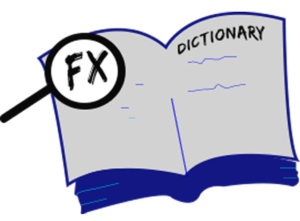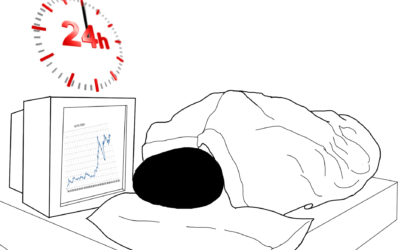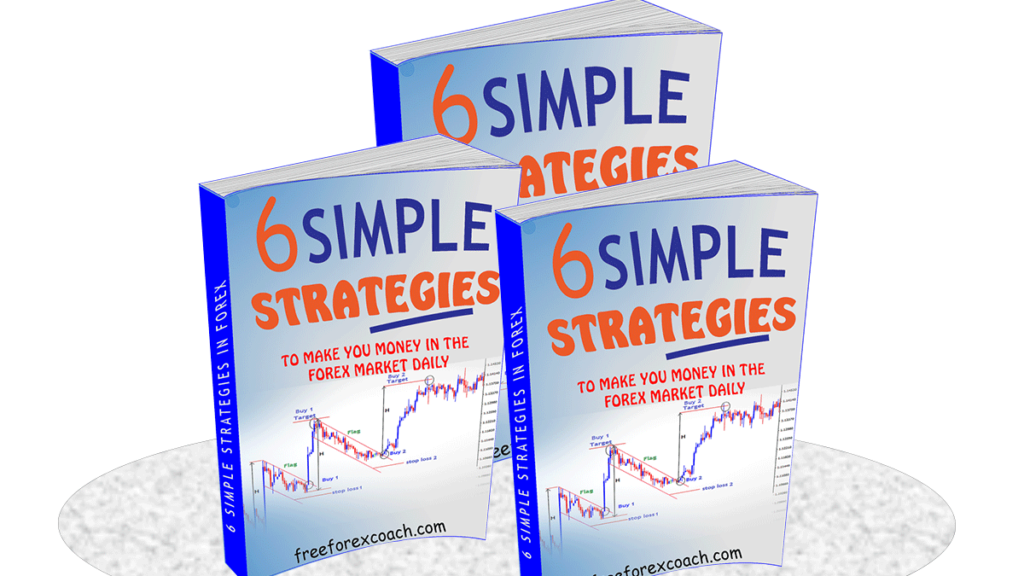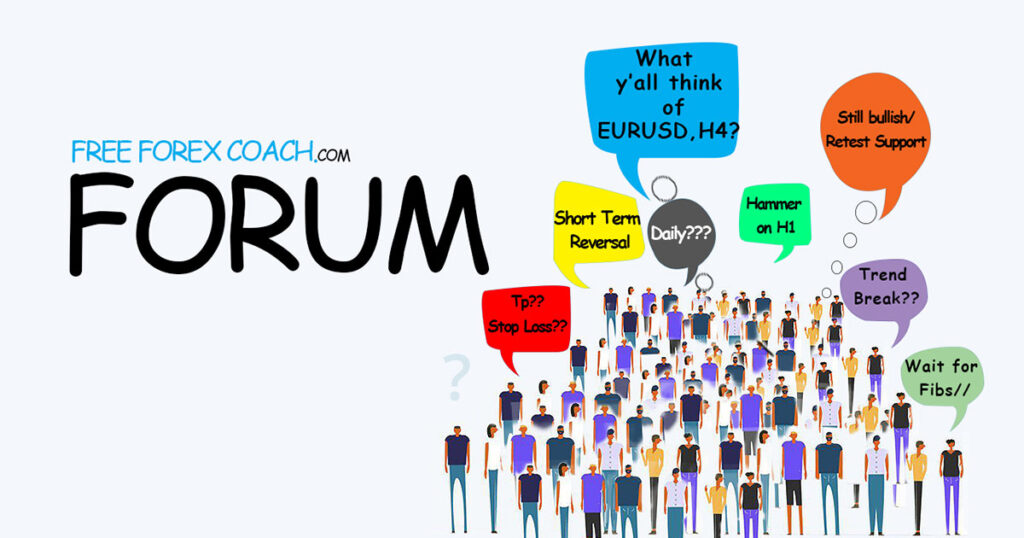Different common terms meaning in forex trading is what all this lesson is about i.e Learning the Forex language. While trading in forex, you are likely to encounter some of the forex terms most traders use on the market.
Let’s get started.

Forex(Foreign Exchange)
Forex simply means currency trading, The exchange of one currency for another at an agreed price on the over the counter(OTC)market.
Foreign Exchange Market.
Foreign Exchange Market is a place where participants buy and sell currencies, exchange and speculate currencies.
It is composed of market makers, brokers ,inter-bank markets eg banks, hedge funds, mutual funds and retail traders.
The foreign exchange market has no central clearing house, therefore it trades over the counter(OTC).
Over The Counter market
It is a decentralized market where financial instruments such as currencies, indices and commodities are traded directly between two parties. It is done electronically and has no physical location.
Foreign Exchange Rate.
Foreign exchange rate is the rate at which one currency is exchanged for another. The value of one currency is relative to the other e.g if the EUR/NZD exchange rate is 1.58448, 1 EUR is worth 1.58448 NZD.
Market Makers
A market maker provides liquidity in a particular financial instruments and is always ready to buy or sell that instrument hoping to make a profit on the bid and ask spread.
Futures, options and Spot markets
These are contracts to buy or sell at a specified amount of a given currency at a predetermined settlement price on a set date in future.
Currency future contracts specify the price at which currency can be bought or sold at a future date.
Options
An option is a financial instrument that gives the buyer the right or the option, but not the obligation to buy or sell an asset at a specified price on the options expiration date.
Spot Market – meaning in forex
Here currencies are traded immediately or on spot, using the current market price.
It is an agreement between two parties to buy one currency against selling the other currency at an agreed price for settlement on the spot date. It is the forex trading.
Rollover- meaning in forex
This is the interest paid or earned for holding a currency spot position overnight.
Each currency pair has an overnight inter-bank interest rate associated with it. This is because forex is traded in pairs and every trade involves only 2 different currencies also 2 interest rates.
Market and spot trades need are settled and rolled forward every day. If the interest rate on the currency you bought is higher than the rate on the one you have sold, you will earn a positive roll and the reverse is true.(pay rollover)
currency pairs – meaning in forex
Major Currency pairs
Major currency pairs contain the U.S. dollar on one side, either the base side or the quote side. They are the most frequently traded pairs in the forex market because they have the lowest spread and are the most liquid. The EUR/USD is the most traded pair with a daily trade volume of nearly 30% of the entire forex market.
Cross Currencies
These are Currency pairs that do not include the U.S. dollar. The most commonly traded is the Euro vs Yen (EUR/JPY)
Exotic pairs
Exotic Currency pairs are made up of the major currency paired with the currency of the emerging or a strong but smaller economy from a global perspective.
For example Hong Kong, Singapore and the European countries out of Euro Zone.
These pairs are not traded as often as the majors or minors. The cost of trading these pairs is always higher than the majors or minors due to the lack of liquidity in these markets, low trade volumes and large spreads.
Base currency – meaning in forex
The base currency is the first currency in any currency pair. It is the one in which the price currency is quoted against. The base currency can strengthen or weaken at any point.
For instance, if we use GBP/JPY as an example, the GBP is the base currency. Likewise, for EUR/NZD, the EUR is the base currency.
The value of the base currency is always 1(one) in relation to the quoted currency. The base currency is sold or bought while simultaneously buying or selling its quoted currency.
Quoted currency/Counter currency
This is a second currency in a currency pair. The price of the base currency is reflected with the help of the quote currency.
The quote currency is separated from the base currency by a slash.
From the above example,GBP/JPY, the JPY is the quote or the counter currency and for EUR/NZD, the NZD is the counter/quote currency.
If the quoted price is 1.57807, this simply means that 1 EUR = 1.57807NZD.
A broker
A firm that matches a buyer and a seller of financial instruments together for a fee or commission.
A pip, A lot and Spread – meaning in forex
A pip is the smallest amount a price can move in any currency quote.
For example 1 pip= 0.0001 for EUR/USD and 0.01 for USD/JPY. If the quotation changes from 1.2000 to 1.2001 this means it changes by 1 pip.
Pip Value.- Meaning in forex
To get the pip value, divide the 1 pip by the exchange rate and then multiply by the number of units traded.
For example, to calculate the pip value for EUR/USD, divide 0.0001 by the current exchange rate of 1.12792 and multiply it by 100000 to get a pip value of 8.86 euros when using a standard size.
If you want to convert it back to USD, multiply it by the exchange rate of 1.12792 to get a pip value of $10. That is (8.86 * 1.12792).
For USD/CAD at a current exchange of 1.34805, pip value is 0.0001 divide by 1.34805 and multiply by 100,000.
pip value= $7.41.
Lot
The standard unit size of a transaction .
One unit size of a standard lot is equal to 100000 units of the base currency , 10000 units for a mini and 1000 units for a micro and 100 units nano.
Standard Account.
Trading with a standard lot size. A standard lot size is equivalent to 100,000 units of the base currency.
Mini Account
Trading with mini lot size. A mini lot size is equivalent to 10000 units of the base currency.
Micro and Nano accounts,
A micro lot size is equivalent to 1000 units of the base currency while a nano is equivalent to 100 units of the base currency.
Spread
The difference between the sell quote/ bid price or the buy quote/ask price. It represents the brokerage service cost and covers transaction costs. Spread is calculated in pips.
Bid price – Meaning in forex
The bid price represents how much the market will pay for the quoted currency in relation to the base currency. It is used when selling a currency pair/ going short.
Ask price – Meaning in forex
This is how much the market will charge for the qouted currency to buy one unit of the base currency. E.g for USD/JPY,
if I want to buy this currency pair,it necessarily means that I intend to buy the base currency which is the U.S. dollar. The ask price reflects how much in Japanese Yen the market will charge me to obtain the U.S. dollar.
Forex Margin, Equity & Leverage
Margin
The good faith deposit required to open a position. This ensures that you have enough balance in your account relative to the size of your position. 1% margin requirement allows you to trade a $100,000 lot with $1000 deposit, $100 deposit for a mini account=$10000.
Free Margin – meaning in forex
This is the amount of money on your account that is not engaged in any trade and you can use it to take more trades/positions.
Free Margin = (Equity- Margin)
Equity is directly proportional to free margin. Therefore as equity increases so as the free margin and the reverse is true.
Margin Level – meaning in forex
Margin level is the ratio of equity to margin in percentage. This is the minimum level of your account at which you are allowed to take a trade. Brokers use it to determine whether traders can take any new positions or not.
Margin level =(Equity/Margin*100%)
This is the level where a broker can determine whether you can take any more new trades or not.
At this level your equity is equal to margin. So you will not be allowed to open any new position unless any of your running trades goes back to profits and your equity increases.
Margin Call level
This is a threshold level that if your margin level goes below, you will not be able to take any position.
Stop Out level
This is the point which when your margin level goes below it, the system starts closing your losing positions starting with the biggest losing position. If your level goes above it, it stops closing.
Leverage – meaning in forex
Leverage means controlling a big account by only contributing little and borrowing the rest from your broker.
Traders are given an opportunity to control huge a mounts of money using very little of their own to make potential gains.
For example you can trade a standard account of $100,000 by simply using an account of $1000 required as your margin by your broker only if your broker requires a 1% margin.
With just $1000 you can trade a position of $100000. The trader is trading 100 times margin . The leverage will be 1:100, 1 unit controlling 100 units.
Balance:
Total amount of money you have in your account before taking any position.
When you have an open position, it’s profit/loss goes up/down as the market moves but your account balance does not change.
When you close your position, the profit/loss of your position will add/subtract on your balance and the new balance will be displayed.
Equity – Meaning in forex
Your equity is the account balance plus the floating profit/loss of your open position.
For instance if your account balance is $1000 and you have an open position of $500 in a profit, then your equity will be $1500; for a loss it will be $500.
When you close your position, your balance will be $1500 with a profit and $500 when you have made a loss.
The account balance is equal to equity when out of position.
Equity = (account balance + floating profit/loss)
Forex trading and Position execution
This is a position whereby a trader profits from an increase in price. (buy low, sell high). Taking a long position means to buy in forex trading.
Short Position.
Here a trader profits from a fall in prices. (sell high, buy lower). This simply means selling in forex trading.
Bulls – meaning in forex
Traders who count on the rise of the exchange rates(buyers in the market)
Bears – meaning in forex
Traders who count on the fall of the exchange rates in the market(sellers).
Scalping.
A trading strategy where a trader executes a big amount of orders during a short period and fixes profit in several pips
Flat.
A period when the price is within the same range and does not express the direction of growth or decrease.
Gap – meaning in forex
The breaks on the quotation graphs caused by the mismatch between the open price of one trading period and the closing price of the previous trading period due to uncertainties that may have ocurred especially in weekends.
Trading platform.
A software downloaded by a trader on to his computer to be used to execute trades.
Indicators.
Tools of computer analysis used to analyse price movements on the basis of statistical data used in technical analysis.
Candlesticks – meaning in forex
Refers to one of the methods of displaying charts of financial instruments rate changes.
Trade execution
Placing an order to trade; whether a buy or sell.
Trend – meaning in forex
Market movement in one direction, uptrend( bullish) and downtrend(bearish).
Risk Management meaning in forex
Position Sizing.
Using the right trade volumes to setup a forex trade without exposing your trading account to too much risk.
Risk Percentage.
The percentage of your trading capital that is exposed/used when a trade position is set up.
Stop Loss – meaning in forex
How much is risked on a trade. An order to limit losses while trading.
Take Profit.
An order that helps you fix a profit point while trading.
Volatility – meaning in forex
The strength of the exchange rate variation.
Volume.
The amount of financial instruments traded during a certain period.
Analysis – meaning in forex
Technical Analysis
A type of market analysis where forecasts is based on fact that market has a memory and future changes will be influenced by the patterns of its behavior in the past.
Fundamental Analysis
A market analysis where the forecast is based on the news of the financial market, analysis of political and economical information to predict the market movements.
Different forex orders.
Forex market has got a variety of orders some asked by traders and others are done by brokers.
We are taking a simple high light on some of the orders that you should know as a trader. These orders are used when you enter into a trade or exit (instructions). They include;
Market order – meaning in forex
An order to buy or sell at a prevailing/ current market price.
Limit Entry Order.
An order to buy below or sell above the market at a pre-specified price level believing that the price will reverse direction after that point. That is; Sell limit and Buy limit
Stop-Entry Order.
An order to buy above or sell below the market at a pre-specified level believing that the price will continue in the same direction from that point. That is; Sell stop and Buy stop
Stop-Loss Order.
An order to limit losses while trading. It limits additional losses if price goes against you.
One Cancels the Other(OCO).
Two orders where by when one is executed and the other is cancelled.
All these terms above make up forex trading complete and more interesting to understand. Indeed, it is the forex language.
I know some of you cannot wait to start trading your accounts since you have your demo accounts already. However, it will be more easy to trade if you have learnt the language of the business.
Like chess players, having a chess board before you is more exciting and looks easy to play but chess is the most complicated game if you don’t know the chess language.
First you learn its language and then you can lift your hand to make your first move knowing who moves and in which direction.
We shall expand on most of the terms with examples in the next sessions.
How long should you hold an Open Position ?
How long you can hold an open position in forex, is a personal thing for all traders. The decision is all yours. You know what your goals are as a trader, the kind of strategy you use to trade. All this starts from what you are? and What you want? If I am to answer,...
- Oh, bother! No topics were found here.



